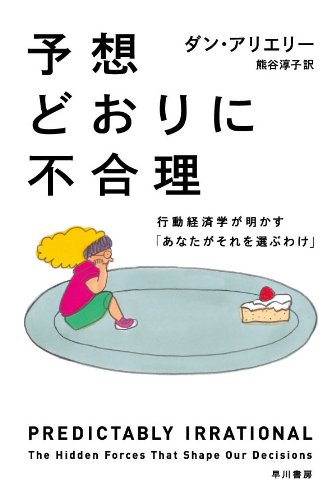- Published on
Why do we procrastinate what we have decided to "do" forever? ~The economics of "procrastination" and self-control
Source: Dan Ariely, "Absolutely as Imaginable" (Hayakawa Publishing)
Roughly speaking
- The reason we put off what we need to do is because of our deep-rooted habits that prioritize small pleasures at the forefront over the big rewards of the distant future.
- As Dan Ariely's "deadline experiment" proved, freedom doesn't necessarily produce good results. It is the strict "coerciveness" from outside that brings out the best results.
- The solution is not to train "will power." The goal is to design a "commitment device" that will "bound" your weaker future self in the future.
Introduction: To those who will "become serious from tomorrow"
"My health check results were bad, so I'll start exercising tomorrow." "This is the long weekend, I'll read the books I've accumulated," "Today, I'll go to bed early." Every day we make many promises with ourselves. However, most of the promises are easily broken the next day, along with the devil's whisper, "Can I start tomorrow..."
This is not because you are particularly weak willful. As Dan Ariely demonstrated in "Absolutely Absurdly as Predicted," this is a universal and predictable "problem" that the human species faces. Within us we live together are "serious planners" who set long-term goals and "impulsive performers" who jump on immediate pleasure, and in most cases the latter wins.
So, how can we get out of this eternal procrastination loop?
Deadline saved students
In her own lesson, Ariely conducted a groundbreaking experiment to explore the mystery of this self-control. He forced students to submit three reports during the semester, but changed the "deadline" rule in three groups.
Group 1 (dictatorial type): The professor set strict deadlines for the three reports at equal intervals throughout the semester.
Group 2 (Democratic): Students themselves can freely set three deadlines until the last day of the semester, and once they have been decided, they cannot change them.
Group 3 (Leave Fare): There is no clear deadline, and all three must be submitted on the last day of the semester.
What was the outcome? The best grades were in Group 1**, where the professor placed strict deadlines. And the worst performance was Group 3**, where they were given complete freedom. Group 2, who set his own deadline, was in between.
This experiment tells us two important facts. First, the best medicine against procrastination is external enforcement**. And secondly, we are not able to properly recognize our own procrastination issues and are unable to set optimal deadlines**.
[Improvement Plan] Create a "commitment device" that will bind you in the future
If relying on willpower is useless, what should we do? The solution that Allielie presents is clear. It sets up a "commitment device" that will allow your calm and rational "self now" to bind you in advance to your "future self" who will succumb to future temptations.
This is the same wisdom in Greek mythology that bound Odysseus to the mast in order to defeat the temptation of the Siren's singing voice.
If you want to lose weight: He dumps all his large sized clothes and promises to friends and family "if he doesn't lose weight, he will be fined." Make a reservation for a gym personal trainer and create a situation where cancellation fees will be charged.
If you want to save money: On payday, it is set to automatically deductible into a financial savings account that cannot be easily withdrawn from your salary account.
If you want to finish your work: Declare to your boss or colleagues that you will "share the draft by 5pm on Fridays." They use other people's eyes as "force."
The key is to block your escape route before you face temptation. This is the single and most effective strategy to overcome your weaker self.
Conclusion: Win through mechanisms, not willpower
Procrastination is not a matter of moral flaws or nemesis. It is a predictable "spec" built into our brains. So there's no need to fall into self-loathing. What is needed is not a theory of perseverance, but a perspective of designing a "mechanism" to control yourself wisely.
After acknowledging and accepting your weakness, how can you avoid that weakness? That question holds the key to a productive and satisfying life.
[Actions to encourage action] Ariely also proposes the groundbreaking idea of "self-controlled credit cards" to solve the problem of self-control. What kind of card is that? "Absurd as expected" is packed with many more unique solutions that take our weaknesses away. Please pick up this book and learn how to manipulate yourself wisely.

